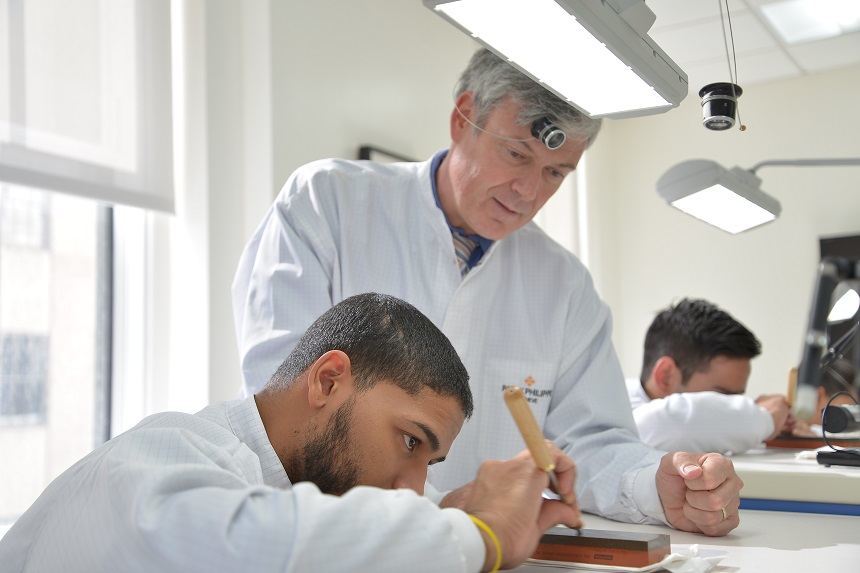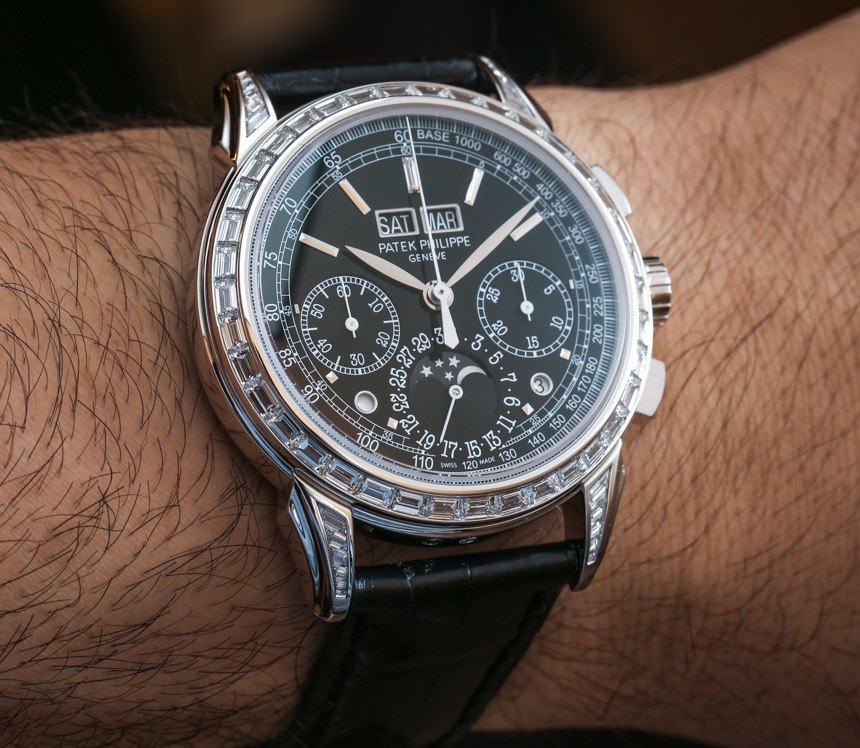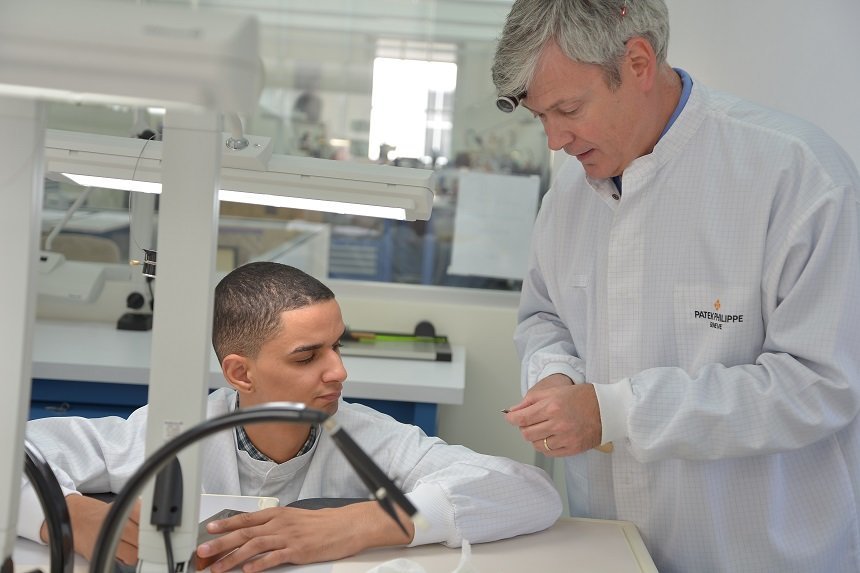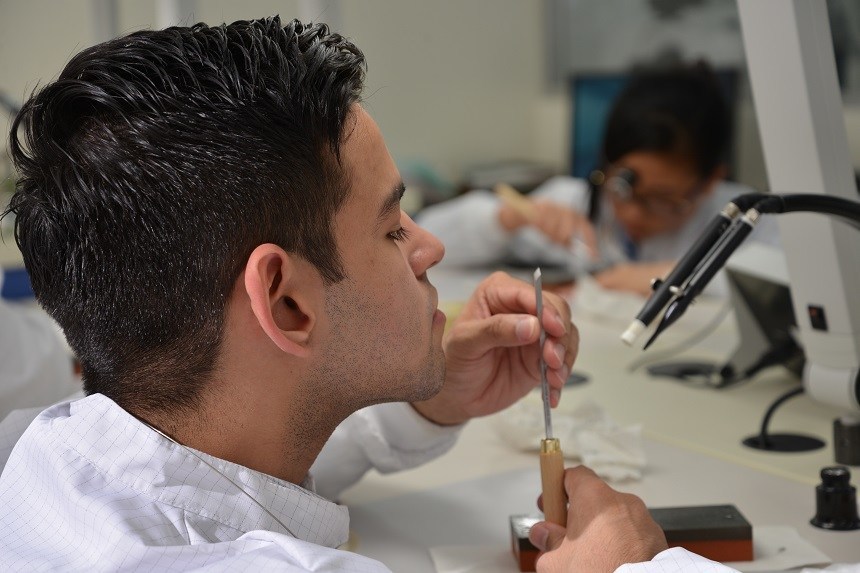
What really impressed me about Pettinelli’s method, though, was the way in which the selectors put the emphasis on how the test was approached and the candidates dealt with the pressure of the presented problem, rather than what the answer given actually was.
The first year-and-a-half of the two-year course will focus on traditional watchmaking techniques, using the state-of-art equipment already installed on the Patek Philippe site. Students will be required to make their own tools for some of the skills they are to learn, as well as spending significant time studying the theory of horology. The course will be taught by Laurent Junod, who was previously the workshop director of the New York service centre. Junod himself is kind of perfect for the job. He moved to America in 1988 hoping to see a different part of the world. He liked America so much, he never left. He’s a level 4 Patek Philippe watchmaker and brings decades of experience to the classroom. Patek aim to restore any watch they have ever made since their foundation in 1839. Throughout his time with the company, Laurent Junod has seen many an historical piece pass through his hands. This practical experience is invaluable. It would be impossible to synthesise the testimony of someone who has been there and done it in the way Junod has. The loss of the workshop is the gain of the school. With Junod acting as a mentor and a bridge for the current students, the company can feel confident the stream of know-how will flow from one generation to the next.

So let’s get down to the nitty-gritty. I’m sure you all want to know how you can apply for a position on the Patek Philippe Horology Programme of New York. Well, right now, you can’t. The six successful candidates from this application process have only just started their two-year course, which will be conducted by just one man (Junod). There’s a possibility that the programme will expand in the future, but right now, Pettinelli wants to focus on getting this experiment right. They’ve based the course structure on a pre-existing Patek Philippe course held in Shanghai. The first graduates of the Shanghai course are starting to make their way in the workshop proper and seem to have taken to servicing like ducks to water. This bodes well for the American arm of the programme. Pettinelli would like to open more training centres, but one of the major problems is finding trainers!

Even though there is no point in inundating Patek Philippe with pleas at this time, it’s heartening to know that should you wish to pursue watchmaking as a career, you needn’t have any prior exposure to the industry to be a valid candidate. The six successful applicants were all from different backgrounds. The majority of applicants fell between the 18-35 age range with an even split of men and women (of the six selected, four are male, two are female). It does, of course, help to have some familiarity with practical work. Sewing, carpentry, electronics… anything precise and focused will stand you in good stead. If you want to be a suitable candidate, focus more on why you want to be a watchmaker than anything else. What is it that makes you tick? Patek Philippe want to train people whose unutterable love for horology compels them to commit their lives to a long and sought-after career.

This school is a real opportunity, especially for American students, or those based in America with existing work permits. There are no cultural boundaries at Patek Philippe, but the difficulties in gaining work permits and visas might put-off international applicants. If it is something in which you might be interested, keep an eye on the official Patek Philippe website for announcements and updates. We’ll cover any hot news here on aBlogtoWatch too. It’s a rare chance to join an industry that is in dire need of highly trained professionals. Although the course is no guarantee of employment (you have the option to apply upon graduation, and Patek Philippe would still have the option to say no if, for whatever reason, they didn’t feel like you fit their team), it is unusual to have the chance to study (for free) in one of the most dynamic cities in the world, under the tutelage of a man well-versed in some of the finest timepieces the world has ever seen. patek.com

